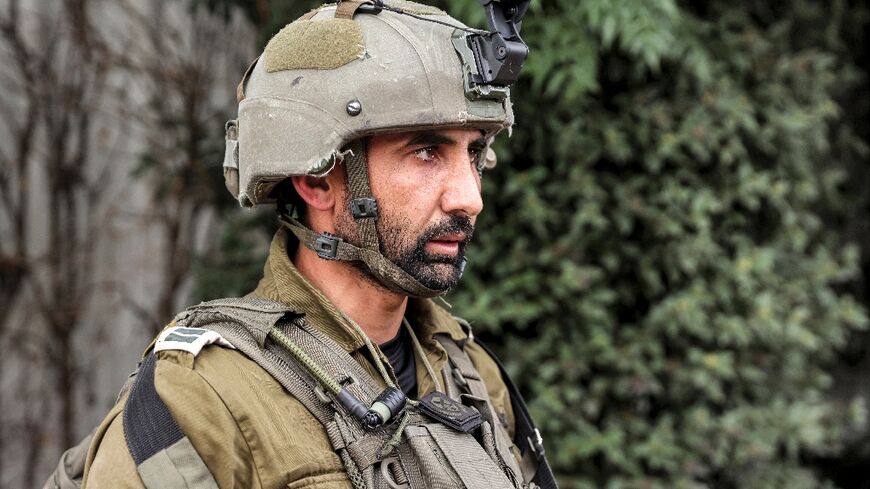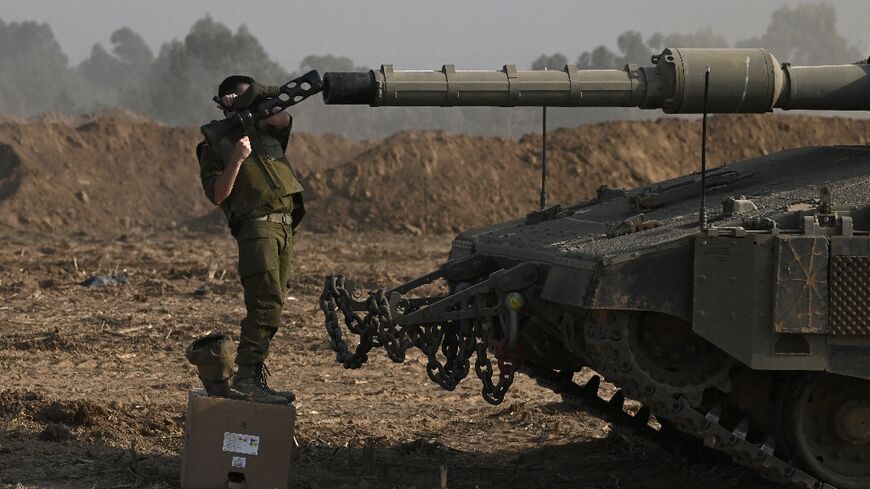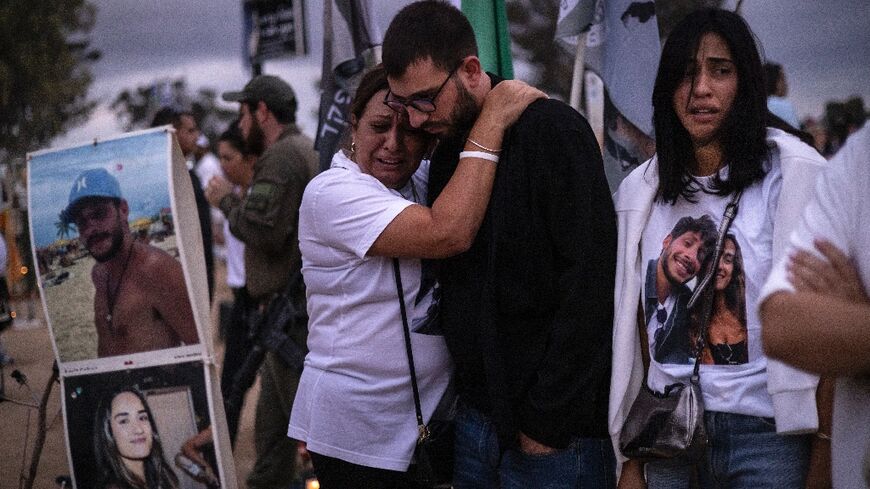Israel's ex-settlers dream of Gaza 'return' as war rages

Nearly two decades after Israeli settlers left Gaza, the October 7 attacks and war against Hamas militants have rekindled a wish among some of a return to the Palestinian territory.
"It cannot be more dangerous to have our families inside Gaza than next to Gaza," said Zevulun Kalfa, 61, recalling the bloody assault earlier this month that hit his kibbutz and other Israeli communities near the border of the blockaded Strip.
Kalfa has fond memories of his years in the former Israeli settlement of Atzmona, just north of Rafah in the southern Strip.
"We would hitchhike to Shejaiya (in Gaza City) without weapons... just to do our shopping or go to the dentist," said Kalfa. "They would sell us fish."
But his former "neighbours" -- Gaza's Palestinian inhabitants who had lived through decades of Israeli occupation -- have allowed "Hamas to feed hatred to their children", Kalfa claimed.
Israel unilaterally withdrew the last of its troops and 8,000 settlers on September 11, 2005, ending an occupation of Gaza that began in 1967, but maintaining near complete control over the territory's borders.
The images from 2005 of weeping Israelis leaving their homes in Gaza settlements, soldiers in tears as they carried out evacuation orders, bulldozers razing houses and synagogues set ablaze by Palestinians have been etched into the collective Israeli memory.
While no Israeli officials have suggested that a potential ground invasion into Gaza would have the aim of reoccupying the territory, some parts of public opinion now view resettlement as a fitting response to the October 7 violence.
- 'We're ready' -
"We have children and grandchildren who dream of returning there," said Kalfa, now an administrative official in Saad, a Jewish religious kibbutz less than four kilometres (2.5 miles) from the Gaza border.
"As soon as the government decides, we're ready."
Rabbi Yitzhak Amitai, also a former settler, stood armed and in uniform near the entrance to Saad. "With God's help" his family would soon resettle in Gaza, he said.
Settlements in occupied territories are considered illegal under international law.
Kalfa voiced more scepticism of a hypothetical renewed occupation, but drew parallels with the capture of east Jerusalem during the 1967 Arab-Israeli war, which he said had not been part of Israel's objectives at the time.
"We said back in 2014 (when Israeli forces last launched a major ground incursion into Gaza) that the only solution was a land incursion, complete cleansing of Hamas and reestablishment of Israeli authority" over the Palestinian territory of 2.4 million inhabitants, Kalfa added.
About 1.4 million of them have been internally displaced since the latest war broke out, according to the UN humanitarian agency OCHA.
The case for Gaza resettlement has gained some ground among Israelis, many of whom were traumatised and galvanised by the October 7 attacks that officials say have killed 1,400 people, most of them civilians.
Recent public opinion polls suggested wide support among Israelis for a continued offensive against Hamas.
In Gaza, the Hamas-run health ministry said Israeli raids have killed more than 6,500 people, most of them civilians.
- 'Best beaches in Israel' -
The move towards more hawkish views on Gaza in Israeli public opinion comes less than a year after Prime Minister Benjamin Netanyahu formed what is considered one of the most right-wing governments in Israel's 75-year history, with pro-settlement allies.
"We return to Gaza," read some 15 signs put up at the entrance to Jerusalem, calling for donations to a fundraising campaign for settlements.
In footage that went viral this week on social media, Israeli singer Hanan Ben Ari, entertaining troops at an army base, called: "We return to Gush Katif" -- Israel's term for the former settlement bloc in Gaza.
"We (will) set up Nova beach on the Gaza beach," Ben Ari sang to the tune of one of his hits, referring to the Supernova desert rave that came under Hamas attack on October 7 and where more than 260 people were killed.
Along with the video, the Hebrew hashtag "Nova beach" has become instantly popular.
Elad, 50, a reserve soldier who asked to be identified by his first name only, had spent his childhood in a Gaza settlement and now lives in another in the occupied West Bank.
He told AFP that after the war, he would want to "return to Gaza, where there are the best beaches in Israel".





